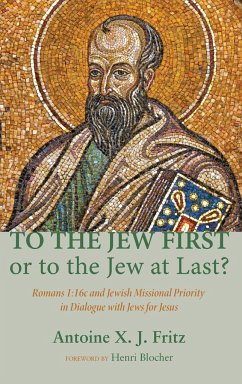In the decades leading up to the Second World
War, American Jews claimed the historical Jesus as
a fellow Jew. By invoking Jesus the
Jew, liberal rabbis such as Kaufmann Kohler and
Stephen S. Wise used Jesus as a weapon against
Christian anti-Judaism, even as they sought Christian
allies against racist Anti-Semitism.
This book explores the figure of Jesus the Jew in the
goodwill (interfaith) movement of the 1920s, when
liberal Jews, Protestants, and Catholics joined to
repudiate the exclusive Protestant nationalism of the
Ku Klux Klan. These goodwill exchanges attempted to
create an inclusive national religious identity,
laying the foundation for a new
interpretation of America as a "Judeo-Christian"
country during WWII. The book follows Jesus the Jew
from the polemics of liberal rabbis to the rhetoric
of liberal Protestants, who invoked the Jewish
identity of the historical Jesus in their own
struggle against fundamentalism. When Hitler rose to
power in Germany, liberal
Protestants and Catholics, appropriating this Jewish
rhetoric, interpreted Nazism as an attack on Christ
and his church.
War, American Jews claimed the historical Jesus as
a fellow Jew. By invoking Jesus the
Jew, liberal rabbis such as Kaufmann Kohler and
Stephen S. Wise used Jesus as a weapon against
Christian anti-Judaism, even as they sought Christian
allies against racist Anti-Semitism.
This book explores the figure of Jesus the Jew in the
goodwill (interfaith) movement of the 1920s, when
liberal Jews, Protestants, and Catholics joined to
repudiate the exclusive Protestant nationalism of the
Ku Klux Klan. These goodwill exchanges attempted to
create an inclusive national religious identity,
laying the foundation for a new
interpretation of America as a "Judeo-Christian"
country during WWII. The book follows Jesus the Jew
from the polemics of liberal rabbis to the rhetoric
of liberal Protestants, who invoked the Jewish
identity of the historical Jesus in their own
struggle against fundamentalism. When Hitler rose to
power in Germany, liberal
Protestants and Catholics, appropriating this Jewish
rhetoric, interpreted Nazism as an attack on Christ
and his church.








